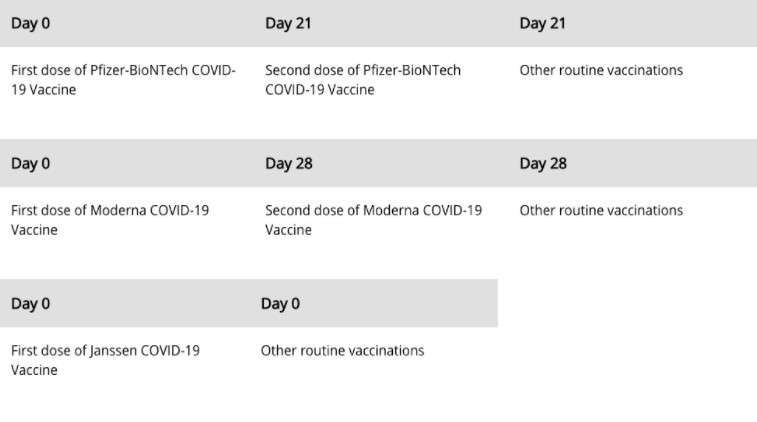Wondering how to get a green card (adjustment of status) in the United States? A medical examination is typically required when applying for a green card in the US. As a requirement, an examination must be performed by a doctor who has been approved by the US Citizenship and Immigration Services (USCIS).
Note that the medical test needed for Green Card applicants is being done by USCIS-designated doctors (sometimes known as civil surgeons). For U.S. veterans, members of the military, and specified dependents, only military physicians are permitted to do the immigration medical exams. Such exams should only be done at a military treatment center within the United States.
A medical examination is required by the embassy or consulate when applying for a US green card, permanent residence, or status adjustment (Form i-485). This is to check for communicable diseases or any inadmissible health condition that may become medical concerns in the future. Communicable diseases include:
- Tuberculosis
- Syphilis
- Gonorrhea
- Hansen’s Disease (Leprosy)
Two disease categories are also of public health significance. The first is quarantinable diseases as designated by Presidential Executive Orders. This category includes:
- Cholera
- Diphtheria
- Infectious tuberculosis
- Measles
- Plague
- Smallpox
- Yellow fever
- Viral hemorrhagic fevers (Ebola, Lassa, and Marburg, etc)
- COVID-19, Middle East respiratory syndrome, or SARS
- Novel or re-emergent influenza (pandemic flu)
The second category includes public health emergency of international concern (PHEIC) events reportable to the World Health Organization (WHO), such as:
- COVID-19
- Polio
- Smallpox
- SARS
- Pandemic influenza
As a requirement, immigration medical examinations must be performed by a doctor who has been approved by the US Citizenship and Immigration Services (USCIS).
USCIS-designated doctors (civil surgeons) perform the medical test needed for Green Card applicants. For U.S. veterans, members of the military, and specified dependents, only military physicians are permitted to do the immigration medical exams. Such exams should also be done at a military treatment center within the United States.
Civil surgeons handle medical exams for status adjusters while panel physicians handle medical exams for immigrant and refugee applicants. All technical instructions to civil surgeons and panel physicians are provided by the Centers for Disease Control and Prevention (CDC).
Is the COVID-19 Vaccination Required for an Immigration Examination?
The Centers for Disease Control and Prevention (CDC) recently required COVID vaccination for the immigration exam starting October 1, 2021. The COVID vaccine consists of two doses of Pfizer, two Moderna shots, or one Johnson & Johnson shot.
As recommended by the Advisory Committee on Immunization Practices (ACIP), all applicants must complete the COVID-19 vaccine shots and must have proper documentation of their vaccination. This will be presented to the Civil Surgeon before having the medical exam.
COVID-19 shots can now be administered at any time, regardless of when other immunizations are due. Sample timeframes for the COVID-19 vaccines from Pfizer-BioNTech, Moderna, and Janssen (Johnson & Johnson), as well as additional immunizations, are shown below:
Figure from Centers for Disease Control and Prevention (CDC)
Finding an Immigration doctor?
Remember that the medical exam can only be performed by two types of doctors. Which one is best for you will depend on where you’re applying from:
- If you’re applying for immigrant visas from within the United States, you’ll meet with a civil surgeon who has been designated by USCIS.
- If you’re applying from another country, you’ll meet with a panel physician who has been approved by the US Department of State.
For immigration purposes, USCIS will not accept medical exams performed in a regular doctor’s office. Before they can be assigned as USCIS authorized physicians, they must have years of expertise practicing medicine. Experience matters because rules have changed.
Things to remember before choosing a doctor
Now that you know what kind of doctor is appropriate based on your own location, here are things to remember when choosing the right and best immigration doctor for you.
Experience
Ask or research about the doctor’s expertise and experience:
- At Statcare, we have completed around 10,000 immigration medical exams for patients from 50+ countries
- Read reviews about the immigration doctor and make sure that they are recommended by USCIS
Pricing
Ask about the fees:
- There are no regulated fees charged by civil surgeons under USCIS. Remember that physician rates vary (on average this costs $200).
- At Statcare we are transparent enough to let you know the breakdown of everything you need to pay for:
- $175 USCIS Civil Surgeon fee
- $20 for RPR (includes blood draw charge)
- $85 for a Urine Gonorrhea Test
- $95 for IGRA (Quantiferon test)
Availability
- Make sure the doctor is available on any day of the week for your own convenience. Most of the immigrants are only available during the weekend. It is important to choose an immigrant doctor that will accommodate those free days of yours.
- Statcare has five USCIS Civil Surgeons working at nine locations that can be accessed via public transport all week.
- Statcare is open Saturdays, Sundays, Holidays, and evenings for USCIS Green Card Medical Exams.
- Testing – On-site testing and vaccines save you a trip to the laboratory.
- Urine collection
- Blood test
- X-Rays or Chest X-Rays (for positive Quatiferon)
Additional reminders:
- Make sure that the doctor has available vaccines. If they don’t, chances are they don’t do enough immigration forms to keep them in stock
- They should give your papers and results in a securely sealed envelope
- Keep in mind that customer service is very important. Availability should be seven days a week to answer your questions and accommodate you always.
- All applicants for adjustment of status will, in most cases, be required to undergo a medical examination. The United States Citizenship and Immigration Services has appointed civil surgeons, often known as immigration physicians, to conduct these medical tests. To locate USCIS immigration doctors, immigration direct can help you.
Red Flags to Look Out For!
We understand that finding a place to have your USCIS medical exam is challenging. You may have a few choices, but not every facility has your best intentions at heart. If you found an unbelievably discounted offer, keep an eye out for these warning signs.
- Any establishment that advertises a whole flat charge that includes all testing (RPR, immigration gonorrhea test, USCIS TB test), as well as all adjustment of status vaccines. Immunization is not one-size-fits-all. You must receive a customized dosage from a qualified professional.
- If the medical examiner requires original documents only. In this case, you need to avoid potential delays by just providing them with supporting documents such a government results of vaccinations.
- Immigration medical offices that do not do several USCIS medical examinations every week. The I-693 immigration form need is continuously changing. So, you’ll want to deal with a facility that has a qualified staff that can correctly and thoroughly fill out the form. In the last two years, the USCIS Tb Test standards have altered, and a particular immigration gonorrhea test is now required.
- Insurance coverage for USCIS medical exams is mentioned in a few places. Medical expenditures incurred as a result of your immigration status are usually not covered, and you may inquire about this with your health insurance provider. Any minor blunder might result in your green card being denied or your citizenship being withdrawn in the future due to healthcare fraud.
- A civil surgeon will complete the USCIS medical exam in one or two days, according to the website. It requires at least two visits since blood and urine tests can take up to 3-4 days. Any practice that completes the paperwork faster may not be employing a reputable lab or performing a bedside test.
Notify the Authorities
Contact your state medical board or public health if you have any concerns about a doctor’s behavior or activities. If you have questions about the immigration medical exam and Form i-693 (Report of medical examination and vaccination record), contact your local USCIS field office.










